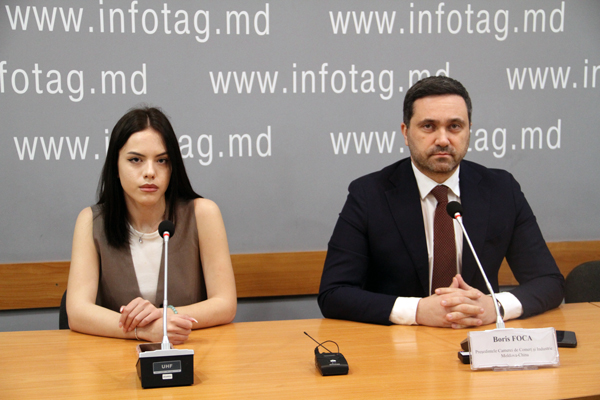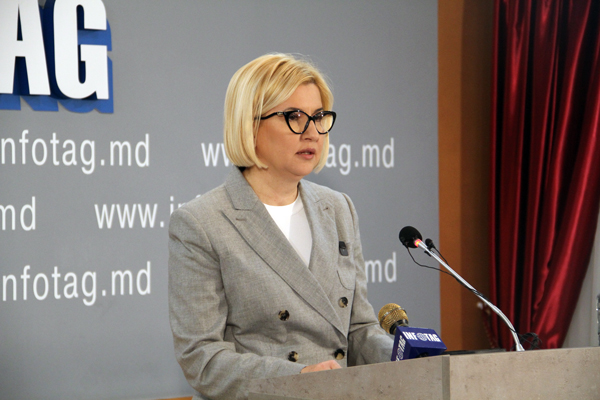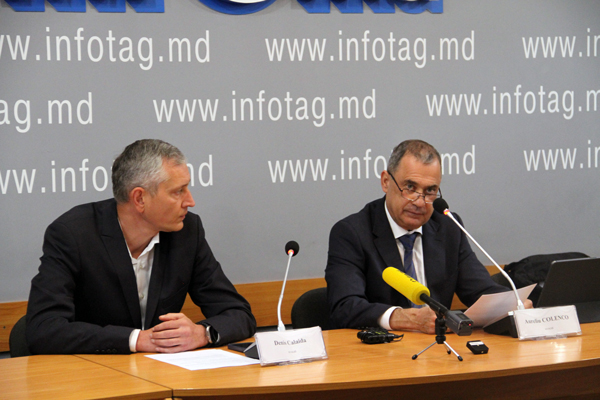Transnistria and Gagauzia
DEPUTY PRIME MINISTER FOR REINTEGRATION: IT IS IMPORTANT TO AVOID SURPRISES IN TRANSNISTRIAN SETTLEMENT

Moldovan Deputy Prime Minister for Reintegration Oleg Serebrian believes that it is important to avoid surprises in the Transnistrian settlement process. He said this on Thursday at a forum on reintegration.
The event, organized by the Institute for European Policies and Reforms (IPRE), the Friedrich Ebert Foundation and the Reintegration Office in cooperation with Expert-Grup and the Promo-LEX Association, is attended by more than 100 specialists from different countries.
"It is important for us to avoid surprises in the reintegration process. For this purpose, it is necessary to coordinate our steps with partners, to predict the consequences of the decisions taken," Serebrian stressed.
He also emphasized that "now the Transnistrian dossier is closely linked to the events in Ukraine, and reintegration depends on the development of the situation in this neighboring country."
"The day of February 24, 2022 was a turning point in the Transnistrian settlement process as well. The war in Ukraine made all approaches to the Transnistrian settlement obsolete overnight. Negotiations in the "5+2" format were put on pause, the role of the "1+1" format and working groups increased. The emphasis has changed. And now, it is not so much the format of the negotiations as their content that is important," the deputy prime minister said.
He emphasized the role of the OSCE in the current situation.
"Now the role of the OSCE is more important than before. We can say that the negotiations with Tiraspol are now held in the "1+1+1+1" format, as the OSCE is a mediator, a moderator of the negotiations, as well as provides us with a platform for talks," the Chisinau negotiator emphasized.
According to him, the process of Moldova's reintegration and the country's European integration cannot be synchronized, but neither can something be singled out as more important.
"These processes should go in parallel. To a large extent, the reintegration process will also depend on the EU integration process. We need to create a separate working group with the Transnistrian region, which will work in this direction. Moldova's commitments to the EU should be gradually implemented on the left bank of the Nistru River as well. This concerns the creation of a common customs, tax and banking space, free circulation of the Moldovan leu. This is possible, as already now 70% of exports of the region's enterprises go to the EU market. We need to do it gradually. Analogies are not very appropriate here, but I want to say that we will not follow the path of Germany's reintegration, when West Germany first recognized a democratic republic in order to reintegrate it later," Serebrian noted.
Answering a question from journalists from Tiraspol, he expressed regret that Chisinau had to limit the export of the products of the Electromash plant.
"It is very unfortunate, but this is the situation in the conditions of the war in Ukraine. We are talking about dual-purpose goods. Enterprises in Kishinev, in Germany, in other European countries are in the same situation. Everyone suffers from the war," the negotiator said.
He also added that "the international community needs to think seriously about the creation of a security zone in the Black Sea region."
"This applies to Transnistria, Ukraine, North Ossetia and Abkhazia as well. Taking into account that Moldova, Ukraine and Georgia are EU candidates, it is necessary to involve the EU and international organizations in order to establish peace and security in the region," Serebrian concluded.
























Add Comment